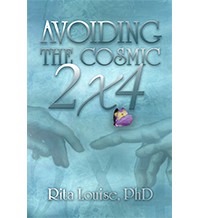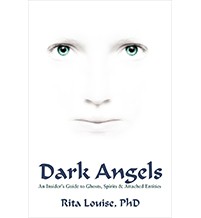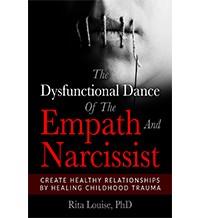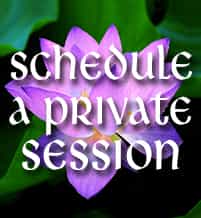Keeping Our Emotions Under Control Through Emotional Regulation
Having and experiencing emotions is a normal part of our lives. Everyone has them, both positive and negative. When we are able to effectively manage our response to an emotional situation we are demonstrating good emotional regulation. Emotional regulation is the ability to handle the way we feel by controlling our emotional state including how we experience our emotions and express our feelings. Having healthy emotional regulation allows us to cope, bounce back from and stay calm during challenging situations.
Imagine something frustrating happens to you and you are triggered. Internally there is an upsurge of emotions brewing inside. You might want to scream and yell, throw something or curl up in a ball and cry in response. Having healthy emotional regulation buys you time before you act or react to what was triggered. Perhaps you took a few deep breaths or counted to 10 before you responded. This slight pause can curtail a sudden impulsive emotional response and give you enough time to restore rational thinking and objectivity to what just transpired.
Intrusive Thoughts: The Bain Of Emotional Regulation
If we are in good working order, something may happen to us and a thought regarding the event comes into our mind. We may react to it, but after a short period of time we are able to let it go and move on with our life. If, however we have a high emotional response and issues with emotional regulation, our mind might want to keep the situation alive. This is the realm of intrusive thoughts.
Unwanted and intrusive thoughts are a thought pattern that is stuck in our head. It is like hearing the lyrics to a song over and over again and are unable to make them stop. These thoughts may revolve around work, our decisions or our relationships. We can have intrusive thoughts on just about any topic if there is an powerful emotional charge tied to it. Worry and rumination are the most common forms of persistent negative thinking and a clear indicator that we are stuck in a stress response.
Rumination As An Intrusive Thought
Rumination is when we over-think or obsess over a situation or event that is upsetting. If you are not sure what rumination is, it is when we relive the details of an argument with a friend repetitively in our mind and just cannot let it go. People will often ruminate when something frustrating, threatening, or insulting happens. Many times we do not even realize we are ruminating. Regardless of what we do to shake it off, our minds keep coming back to the situation trying to make sense of what happened.
Worry As An Intrusive Thought
Worrying is similar to rumination, where our mind becomes trapped in an endless cycle of attempting to figure things out. The key difference between the two is that people who ruminate focus their mental energy on resolving past events, while worriers focus on the future.
Worry is a cycle of living with the question “what if” in the forefront. When we worry, we imagine potential outcomes to an unknown event. We worry in an attempt to solve suspected problems in our lives. We all have moments when we worry. It is when our thoughts become persistent and uncontrollable that they become a cause for concern. Worry can be the first stage in a much larger negative thinking process. It often underscores the manifestation of its much more insidious forms: anxiety and panic, with worry on the mild side of the spectrum and a full blown panic attack on the other.
Emotional Regulation Is A Learned Skill
We are not born with the natural ability to emotionally regulate. Everyone’s emotions spin out of control every once in awhile. For some people, their feelings, when triggered, can seem overwhelming, like an out-of-control roller coaster. Their inner world gets caught up in a destructive cycle of worry or rumination that is hard to stop. Their fight, flight, freeze or fawn responses automatically activate. This combination can cause them to respond to the event in an over the top way where they can find themselves lost in their emotions. These negative events can cause their emotional response to become dysregulated.
Emotional regulation is a skill we learn from our parents or caregivers. In a healthy environment children learn that they can reach out for comfort and safety from these individuals when they are experiencing problems. The nurturing the child receives teaches them that the world is safe. This gives them the opportunity to self sooth as well as developing skills to cope with a problem.
Emotional Regulation And Trauma
This is not the case for someone who has experienced severe trauma and suffers from PTSD or c-PTSD. A trauma survivors emotions can trigger quickly, be displayed on a grander scale and a for longer duration. They are often more emotionally responsive and are challenged with the ability to control the overwhelm they feel inside. They experience intense emotions more frequently and feel like they have no control over them when triggered.
They may feel anger or rage, they may display aggressive behaviors or ‘freak out’. They may blame or accuse others or lash out before they know the facts. They may break down in tears or overreact to what seems like a non-issue. Internally they are experiencing fear, guilt, sadness, frustration, self-loathing, worthlessness or feel abandoned. This all happens, many times, before they can stop themselves.
In addition to this whirlwind of emotions they are feeling inside people with emotional regulation issues do not know what to do to stop their feelings or reduce the intensity of them. Upsetting situation tend to bring up strongly felt emotions that are difficult for them to recover from. They have a hard time letting go of irrational intrusive thoughts, quiet their minds and let go of negative emotions. Once activated, they cannot stop thinking about it even when on a rational level they recognize it is time to let it go.
Emotional Regulation: An Additional Aspect
There is another aspect when talking about emotional dyregulation. It is the tendency to be disconnected from your feelings. People who are emotionally dysregulated may have a hard time sorting out their feelings or problems in recognizing their emotions when they are upset. They might not take their feelings into consideration or may think they are unimportant or unreasonable. When challenged, their emotions may be so overwhelming that they cannot make sense of what is going on inside.
People who utilize the fawn or freeze response as their primary stress response may be more susceptible to this form of emotional dyregulation. Fawn types choose to give up on themselves and their feelings. They have been so well trained they naturally and automatically put them to the side or out of their minds. The mind of Freeze types go completely blank and their ability to identify what is going on inside becomes absent or limited when triggered.
Why Emotional Regulation Is Important
Healthy emotional regulation helps us to live a happy and balanced life. It aids us as we endeavor to better manage our inner world when we are triggered. This can lead to the unwinding of a stuck fight, flight, freeze or fawn response.
Need help emotionally regulating?
Taking action is the key to making positive changes in your life. This includes your health. So don’t wait! Take your next step right now and contact Dr. Rita to schedule a private consultation.
Medical Intuitive Reading – Intuitive Counseling – Energy Healing
© Copyright Rita Louise, Inc. – soulhealer.com. All rights reserved.




